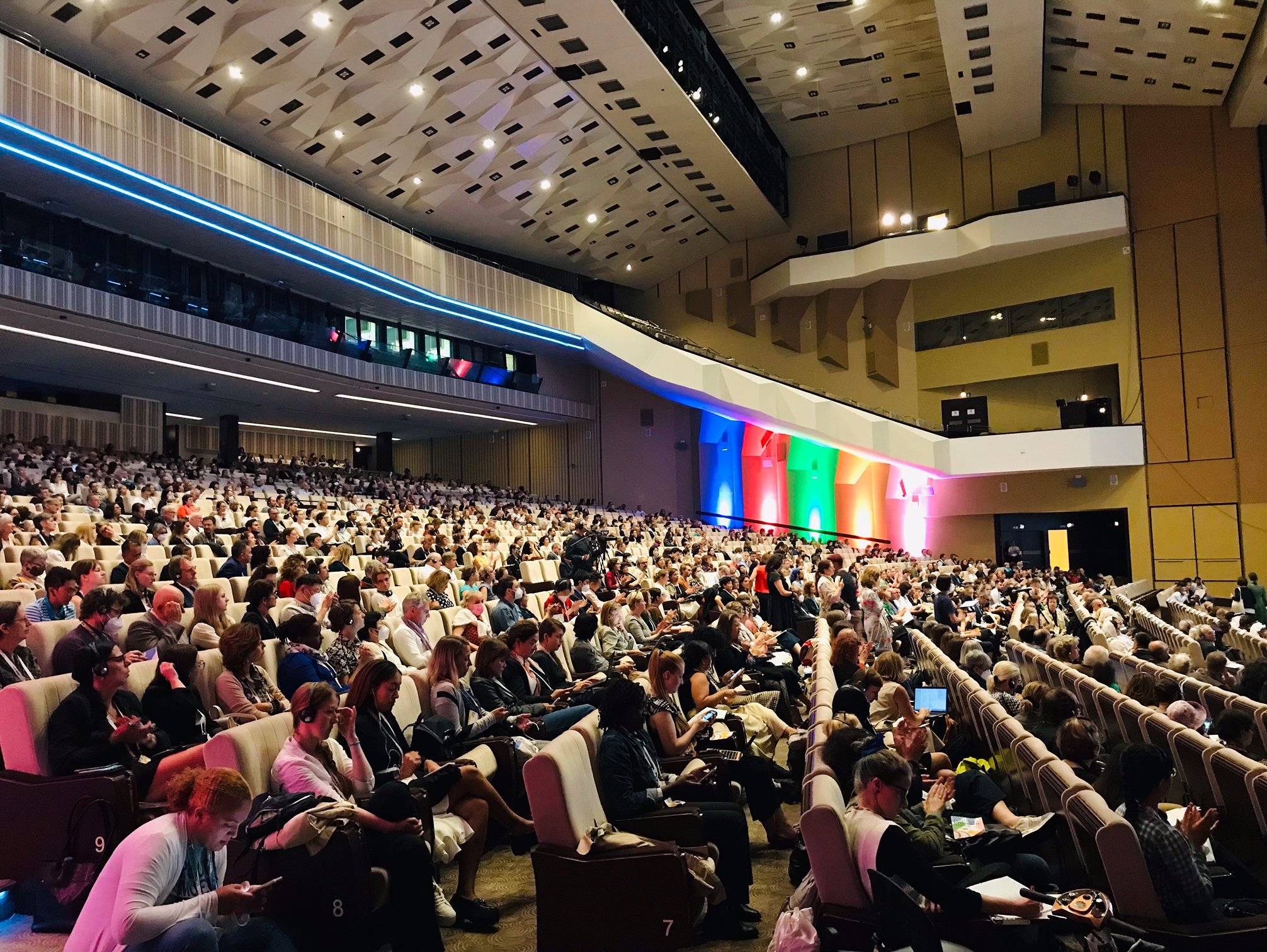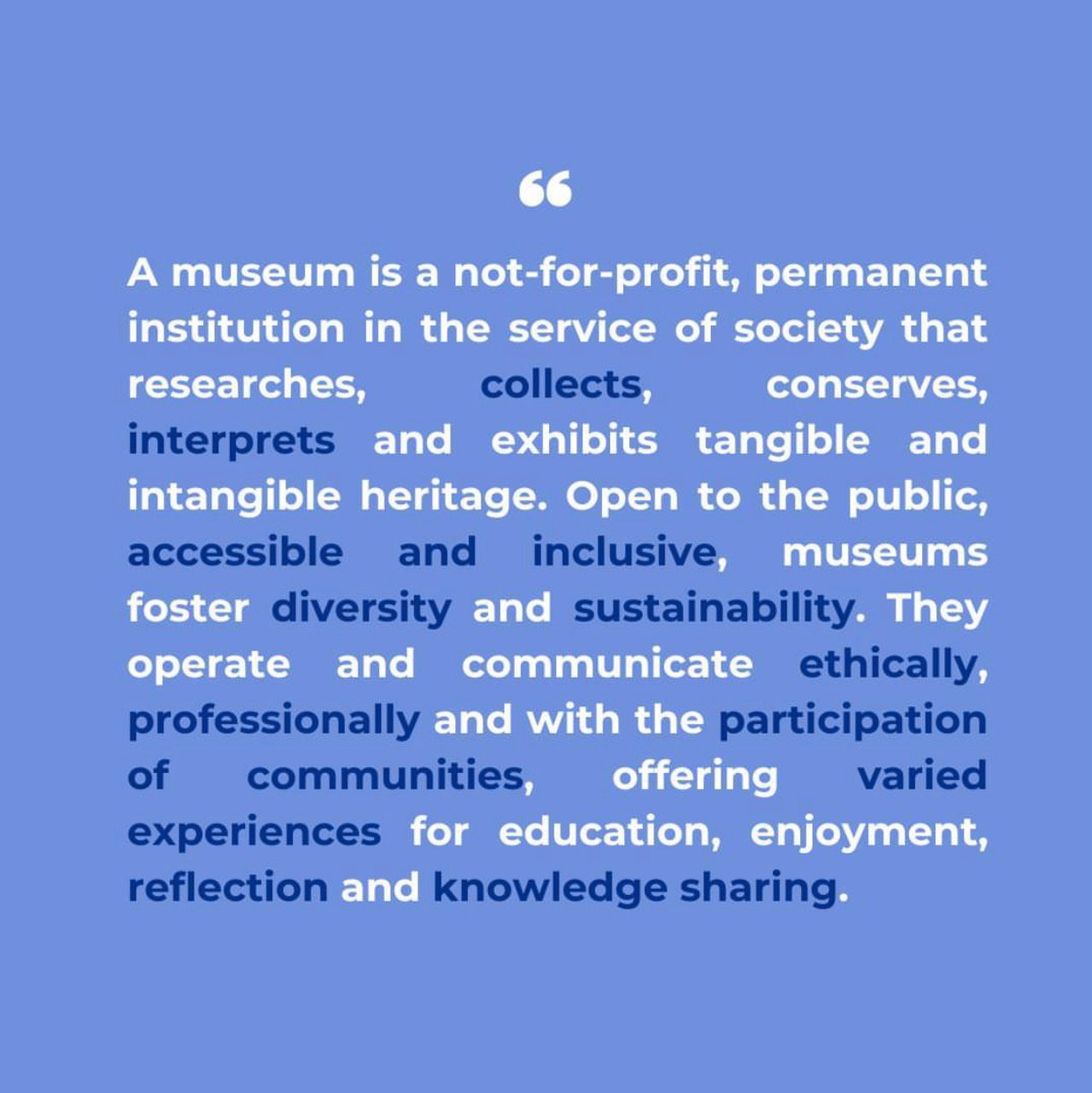ICOM approves a new museum definition

On August 24th, in the framework of the 26th ICOM General Conference held in Prague, the ICOM Extraordinary General Assembly approved a new museum definition. The vote is the culmination of an 18-month participatory process that involved hundreds of museum professionals from 126 National Committees from all over the world.
The new text reads:
“A museum is a not-for-profit, permanent institution in the service of society that researches, collects, conserves, interprets, and exhibits tangible and intangible heritage. Open to the public, accessible and inclusive, museums foster diversity and sustainability. They operate and communicate ethically, professionally and with the participation of communities, offering varied experiences for education, enjoyment, reflection and knowledge sharing.”

This new definition is aligned with some of the major changes in the role of museums, recognising the importance of inclusivity, community participation and sustainability. A new President and Executive Board will be elected during the Ordinary General Assembly. The new governance will meet in due course to set the next steps for the implementation and adoption of the new definition, in collaboration with the ICOM Committee for the Museum Definition, ICOM Define. Just as with the process of the revision, inclusion, transparency, and participation will remain in the heart of this new phase.